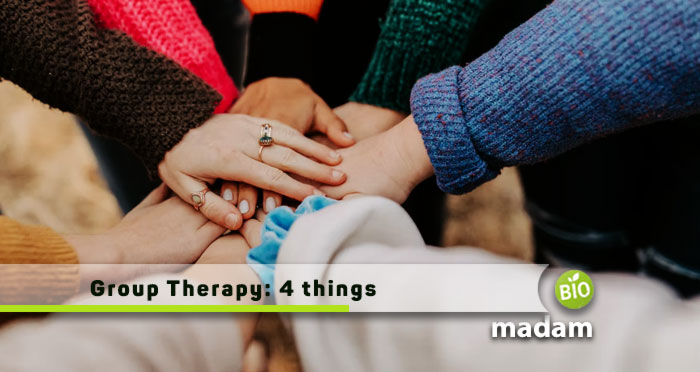Recently updated on January 31st, 2024 at 06:42 am
Group therapy is a form of psychotherapy that involves one or more therapists working with a small group of people, usually six to twelve. A therapist may use this type of therapy when dealing with numerous issues in the same session. There are many benefits for those who participate in group therapy sessions, but there are also drawbacks that you should be aware of before making your decision on whether or not it’s right for you.
The sharing aspect creates an environment where members can give each other emotional support and encouragement during difficult times. For some individuals, it’s helpful to know that they are not alone in their struggles. Here are things you should know about group therapy.
Group Therapy Offers a Safe Haven
One of the benefits of group therapy is that it provides a safe and supportive environment. Group therapy with this site can be extremely beneficial for those who may not have many people to turn to in times of need. A feeling of safety and security is important when you’re sharing your problems with others, as it creates an optimal environment for open and honest communication. Of course, this doesn’t mean that everyone will feel safe or comfortable in a group therapy setting.
Some people may be reluctant to share their problems because they aren’t sure how the other members will respond. On the contrary, some groups can make individuals feel as if their issues are not as serious as those of the others in the group, which can actually be harmful and counterproductive. The sharing aspect creates an environment where members can give each other emotional support and encouragement during difficult times. For some individuals, it’s helpful to know that they are not alone in their struggles.
Group Members Can Serve as Role Models for Other Members
In addition to providing support, group members can also serve as role models for one another. When you’re struggling with an issue, it can be helpful to see how others have coped with a similar problem. It can motivate you to try new strategies and give you hope that change is possible. Seeing how another member has dealt with a similar issue can inspire you to work harder toward your own recovery.

The sharing aspect creates an environment where members can give each other emotional support and encouragement during difficult times. For some individuals, it’s helpful to know that they are not alone in their struggles. Additionally, group therapy can provide an opportunity for you to give and receive feedback from others who may have more experience or insight than you do
Therapists May Use a Variety of Techniques
Different therapists use different techniques to conduct group therapy sessions, depending on the focus type and goals for each session. Some common types of therapy include cognitive restructuring, behavioral activation, psychoeducational, and psychodynamic therapy. The therapist may also use a variety of different activities to help the group achieve its goals and help the members open up and share their thoughts and feelings.
These activities can range from discussing the week’s current events to role-playing exercises. The important thing is that the therapist should be adaptable and able to change the focus or activities as needed in order to keep the group on track. It’s important to ask your therapist about the specific techniques they will be using in your group therapy sessions.
Group Therapy can be Beneficial for Children and Adolescents
While group therapy is typically used for adults, it can also be beneficial for children as it can help them learn how to communicate effectively with others and develop problem-solving skills. When dealing with issues like bullying, divorce, or family problems, younger children may feel more comfortable discussing their feelings with other peers instead of an adult.

Likewise, adolescents can benefit from group therapy in order to address problems like substance abuse, self-esteem issues, and anger management. Group therapy can provide a sense of belonging and acceptance for children and adolescents who may feel isolated or alone. It can also help them learn how to communicate effectively with others and develop problem-solving skills
In some cases, this form of therapy may also help children to better understand their emotions. Group therapy can also help children learn how to deal with difficult situations and develop stress coping skills. It can be a safe place for them to express their feelings and get support from others who are going through similar experiences.
Group therapy is an excellent way for therapists to be able to help a diverse set of people and issues. If you’re considering group therapy as a treatment option, there are many things you should consider before jumping in headfirst. Be sure to ask your therapist how often the groups meet, what happens at each session, and whether they work with children or teenagers.

Hi, they call me Jenna, and I am also known for achieving a gold medal during my Ph.D. in science life. I always had a dream to educate people through my utmost writing hobby. So, I chose this blogging path, and Biomadam gave me this opportunity to present for them. I now stand to entertain you. Continue reading my articles & discuss if you’ve any confusion through the comment section below.

